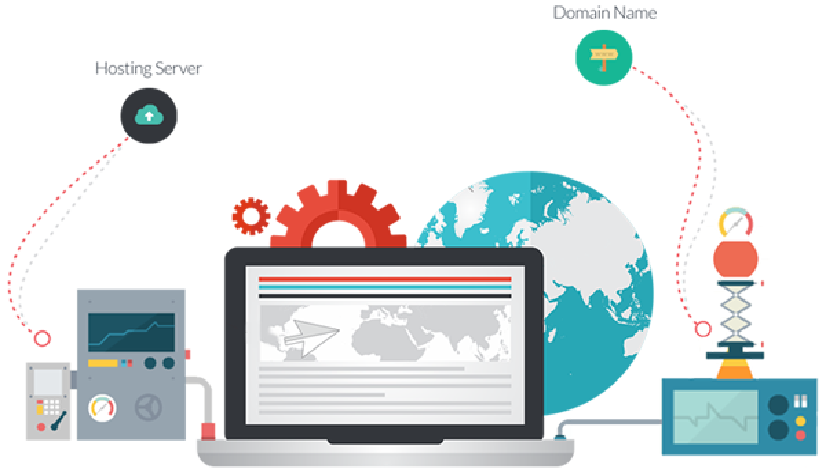How to Choose Between Shared Hosting, VPS, and Dedicated Servers
When it comes to selecting a hosting plan for your website or application, it can be challenging to know which option is right for you. The three most common types of hosting are Shared Hosting, VPS (Virtual Private Server) Hosting, and Dedicated Servers. Each of these hosting solutions has its unique benefits and limitations. In this blog, we’ll guide you through the differences, the pros and cons of each, and help you decide which one is the best fit for your specific needs.
1. Shared Hosting
What is it?
Shared hosting is the most basic and affordable hosting solution. In a shared hosting environment, multiple websites share the same server and its resources (CPU, memory, disk space). The hosting provider manages the server, including maintenance, updates, and security, while you only focus on your website.
Pros:
- Cost-Effective: Shared hosting is the most budget-friendly option, making it ideal for startups, personal blogs, or small businesses with a limited budget.
- Easy to Use: Most shared hosting providers offer user-friendly control panels (like cPanel), making it easy for beginners to manage their websites.
- Managed Service: Server management (like updates and security) is handled by the provider, so you don’t have to worry about technical tasks.
Cons:
- Limited Resources: Since multiple websites share the same server, your website's performance can be affected by the other sites hosted on the same server.
- Less Control: You have limited access to server configurations, which means you can't install custom software or modify advanced settings.
- Security Risks: Shared environments can have security risks because if another website on the same server gets compromised, your website might be at risk too.
Ideal for:
- Small blogs or personal websites
- Low-traffic websites
- Small businesses just starting out with limited resources
2. VPS Hosting
What is it?
VPS hosting offers a middle ground between shared hosting and dedicated hosting. With VPS hosting, your website still shares a server, but it operates within its own isolated virtual environment. Essentially, a single physical server is divided into multiple "virtual" servers, giving each user their own dedicated portion of resources.
Pros:
- More Control: VPS hosting provides greater flexibility and control over your server environment. You have access to root or admin access, allowing you to install custom software or modify server settings.
- Better Performance: Since the resources are allocated specifically to your virtual server, your website won't be impacted by other websites sharing the same physical server.
- Scalability: VPS hosting allows you to scale up or down based on your resource needs. As your business grows, you can increase your server resources without migrating to a completely new server.
Cons:
- Higher Cost: VPS hosting is more expensive than shared hosting, making it less suitable for websites on a tight budget.
- Requires Technical Knowledge: While many VPS hosting providers offer managed services, you’ll need some technical expertise to manage the server if you choose an unmanaged VPS.
- Limited Resources Compared to Dedicated Servers: While VPS offers dedicated resources, it still shares the physical server with others, which can affect performance during high traffic spikes.
Ideal for:
- Medium-sized businesses or growing websites
- Websites with moderate traffic that need more resources than shared hosting offers
- Developers or businesses requiring custom configurations
3. Dedicated Hosting
What is it?
Dedicated hosting is the most powerful and expensive hosting option, where your website gets an entire physical server to itself. You are responsible for the server’s full capacity, meaning you can customize the server according to your specific requirements and have full control over it.
Pros:
- Maximum Performance: With dedicated hosting, your website has access to the entire server's resources, ensuring optimal performance even during high traffic spikes.
- Complete Control: You have full control over your server, including the ability to configure it as needed and install any software or security measures you require.
- High Security: Dedicated hosting provides the highest level of security since no other websites are sharing your server. This isolation reduces the risk of security vulnerabilities.
Cons:
- High Cost: Dedicated hosting is the most expensive option. It’s usually better suited for larger businesses or websites with high traffic and advanced resource needs.
- Technical Expertise Required: Managing a dedicated server often requires technical knowledge, as you will be responsible for server maintenance, security, and updates unless you opt for a managed service.
- Overkill for Small Websites: For small websites with minimal traffic, dedicated hosting might be unnecessary and costly.
Ideal for:
- Large websites with high traffic or resource-heavy applications
- E-commerce sites that require high performance and security
- Companies that need complete control and customization over their hosting environment
Choosing the Right Hosting for Your Needs
Now that we’ve discussed the pros and cons of each hosting option, here’s a quick guide on how to determine which one is right for your business:
Choose Shared Hosting if:
- You’re just starting out with a small website or personal blog.
- You’re on a tight budget and need the most affordable option.
- You don’t need advanced customization or have limited technical expertise.
Choose VPS Hosting if:
- You’re running a growing website with moderate traffic.
- You need more control and customization than shared hosting can provide.
- You’re ready to invest in a more powerful hosting solution but still want to avoid the high cost of dedicated hosting.
Choose Dedicated Hosting if:
- You have a large website with high traffic or resource-intensive applications.
- You need maximum performance, security, and control over your server.
- You have the technical expertise to manage the server or are willing to pay for managed services.
Conclusion
Choosing the right hosting plan depends on your website's size, traffic, and resource requirements. Shared hosting is a great option for beginners or small websites with low traffic, while VPS hosting offers a balance of performance and control for growing businesses. Dedicated hosting, on the other hand, is ideal for large businesses with high traffic that need full control over their hosting environment. Evaluate your needs carefully to choose the best hosting solution that will help your website perform at its best.












